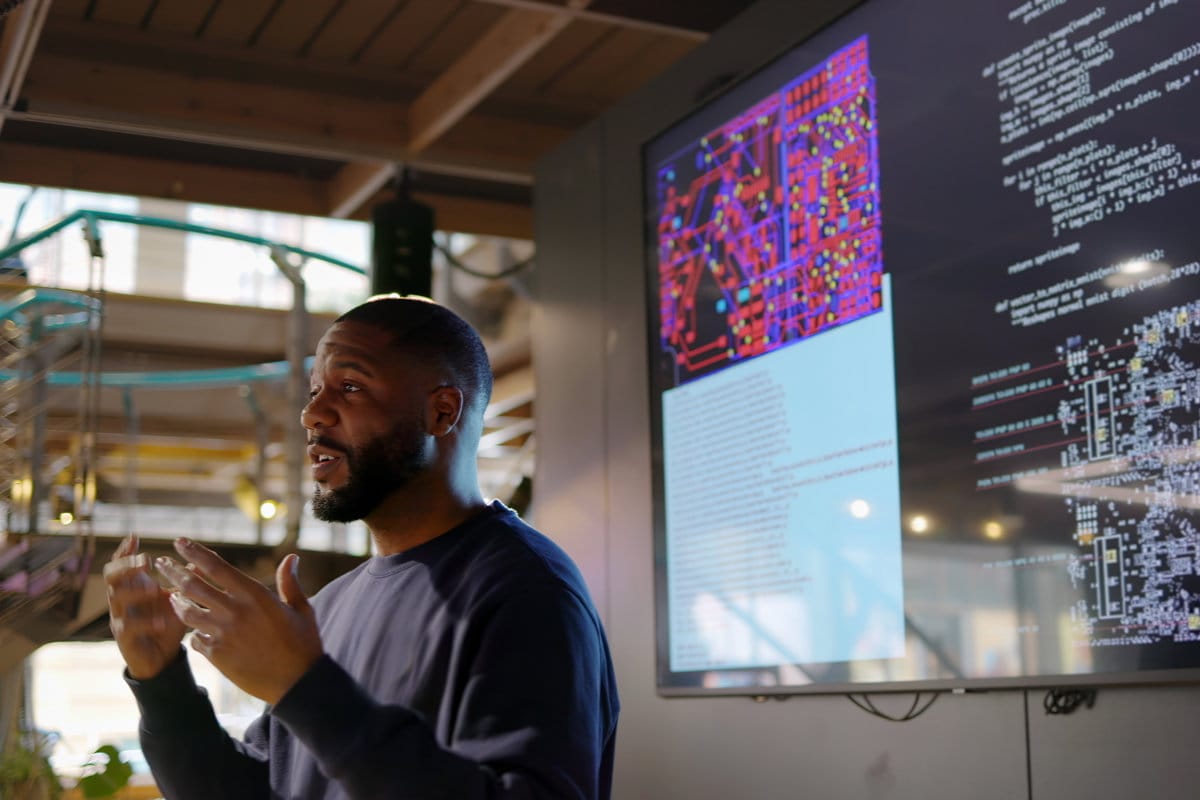Artificial intelligence (AI) is transforming healthcare, from improving clinical decision-making to enabling personalized treatment and precision medicine. This intensive certificate program offers a hands-on introduction to AI for professionals in hospitals, clinics, and research settings. Participants will explore core AI architectures, ethical considerations, and implementation strategies, while gaining practical experience with Python libraries like NumPy, Pandas, SciPy, and OpenCV.
Through interactive exercises and a capstone machine learning project focused on heart disease risk prediction, learners will build the skills and confidence to apply AI in their own fields — bridging the gap between technical knowledge and clinical impact.
The program is led by Dr. Alireza Sadeghian, Professor of Computer Science at Toronto Metropolitan University and Affiliate Scientist at St. Michael’s Hospital. With over two decades of experience in AI research and education, Dr. Sadeghian brings a rare blend of academic depth and applied insight. His leadership in healthcare AI at the Institute for Biomedical Engineering, Science, and Technology (iBEST) informs a curriculum that balances technical rigor with real-world relevance.
Structure of the Program
-
All learning takes place online within 12 sessions scheduled over 3 weekends
-
39 total hours of live instructional time that combines lecture content and practice to reinforce knowledge (plus optional office hours for additional support)
-
Resource material available for reference and additional learning
-
Exercises to apply knowledge learned through the program
Faculty
Alireza Sadeghian, PhD is Professor in the Department of Computer Science at Toronto Metropolitan University, where he teaches undergraduate and graduate courses in Deep Learning, Soft Computing, and Machine Intelligence. He currently serves as Program Director for the Applied AI in Medicine Certificate Program at the Temerty Faculty of Medicine, University of Toronto. He is also an Affiliate Scientist at the Li Ka Shing Knowledge Institute and Keenan Research Centre for Biomedical Science at St. Michael’s Hospital, where he previously led AI/ML analytics research in healthcare as part of the Institute for Biomedical Engineering, Science, and Technology (iBEST).
His contributions to education and research have been recognized with numerous awards, including the Dean’s SRC Research Award, IEEE Toronto’s Outstanding Leadership Award, and the YSGS Outstanding Contribution to Graduate Education Award. He has also been named among the Top 25 Canadian Scientists by the Royal Canadian Institute for the Advancement of Science. Dr. Sadeghian is actively involved in standards development for explainable AI through the IEEE, and serves on editorial boards for leading journals including Information Sciences, Applied Soft Computing, and Expert Systems.
In 2020, as part of a team led by Dr. Jane Batt, Alireza Sadeghian won the People’s Choice Award at St. Michael’s Hospital’s Angels Den competition for their presentation, Smart Garments: AI Therapy for Your Muscles.

Learning Objectives
- Apply Python programming knowledge, algorithms, tools and libraries in software development
- Design and evaluate Python solutions and processes based on the specified requirements
- Analyze and solve medically related practical computing problems
- Process, clean, manipulate, analyze, and visualize data using relevant Python libraries
Who is this program for?
This certificate program is for health professionals interested in applying AI in health and medicine, as well as decision makers invested in implementing AI for research and operational initiatives.
No previous programming, mathematics, or computer science knowledge is required. Those with prior coding experience will also find something new in this program and have the opportunity to advance their technical skills.
This certificate program is designed for:
- Specialist Physicians and Surgeons
- Primary Care Physicians
- Allied Health Professionals
- Researchers, Scientists, and Clinician Investigators
- Residents, Fellows, and Trainees
From Past Participants
-
The 'Applied AI in Medicine' was an excellent introduction into the role of AI in medicine. I found it to be a practically tailored course that offered ample opportunities for small group learning and hands-on coding. It was my first course in AI and has sparked an interest that has led me to continue further education and exploration in the field!
Anthony Di Fonzo MMI, MD, CCFP, DCAPM, CIME
Staff Emergency Physician, Headwaters Health
Lecturer and Clinician Teacher, Department of Family Medicine | University of Toronto
Courtesy Staff Privileges, Trillium Health Partners, Humber River Hospital
Medical Director and Pain Physician, Releva Chronic Pain Centre -
The Applied AI in Medicine Course was incredibly valuable for me as a detailed introduction, from basic principles of programming in Python, getting used to interactive development environments, to learning about important libraries used in data manipulation, visualization, and analysis (which I now use today). I started from having just a rudimentary hobbyist exposure to programming a few decades ago prior to medical school, to now having an understanding of Python programming that I have continued to build upon independently since taking this course. Subsequent add on courses from the same instructor also provide an excellent introduction to using LLMs effectively and an introduction to concepts in model fine-tuning and retrieval augmented generation. Beware the learning curve is steep - but I think well worth it for anyone with a significant interest in AI and wishing to understand the underpinnings to become a more effective collaborator with machine learning experts in future endeavours.
Peter C Tai MD, FRCPC
Associate Professor, University of Toronto
Division of Neurology – Epilepsy
UHN / Toronto Western Hospital -
Taking the “Applied AI in Medicine” course in January 2024 was a transformative experience. Expertly arranged and presented by Dr. Alireza Sadeghian and his excellent team at the Faculty of Medicine, University of Toronto, this program masterfully bridged theoretical AI concepts with real-world healthcare applications.
I’ve been fascinated by AI as a diagnostic aid since the 1980s, when I first read about a now-crude, rules-based expert system designed to diagnose acute appendicitis. That early glimpse into machine reasoning stayed with me—and this course finally gave me the tools to bring that long-standing interest into modern practice.
What stood out most was the hands-on approach. From day one, we dove into coding exercises, case studies, and implementation strategies that mirror today’s challenges and innovations in medical AI. The instructors—experts in their fields—were incredibly supportive and passionate about empowering learners from diverse backgrounds.
Beyond the core curriculum, this course re-ignited my interest in AI in Medicine and set me on a continuous learning path. As a direct result, I enrolled in the April 2025 workshop “Application of Large Language Models in Healthcare,” where I further deepened my expertise and translated cutting-edge LLM techniques into practical clinical workflows.
Whether you’re a clinician eager to adopt AI tools, or simply curious about medicine’s future, this course, and its subsequent workshops, delivered a rare blend of technical depth and clinical relevance. I walked away with practical skills, a renewed excitement for healthcare innovation, and the confidence to lead or at least, attempt AI-driven projects.
Additionally, the insights gained here offer invaluable guidance for medical students and recent graduates—helping them discern which specialties stand to be revolutionized by AI and which they might consider avoiding when charting their career paths.
Highly recommended for anyone ready to be at the forefront of AI in medicine.
Peter David Dawes MD, MB.BCh, FCS(SA), FRCSC
General Surgeon -
I thoroughly enjoyed the Applied AI in Medicine course. It was practical, well-structured, and remarkably accessible, even for someone like me who hadn’t programmed in a long time. The instructors did an excellent job of demystifying complex AI concepts, and the hands-on Python sessions allowed me to develop skills I could immediately apply in a healthcare context.
What impressed me most was how closely the course content aligned with real-world medical challenges. By the end, I felt significantly more confident in using AI tools and exploring how to integrate them into my clinical practice. I highly recommend this course to anyone in healthcare who is interested in exploring the potential of AI.
Chi-Ming Chow MDCM MSc FRCPC FCCS FASE DBIM CPC(HC)
Professor in Medicine, University of Toronto



